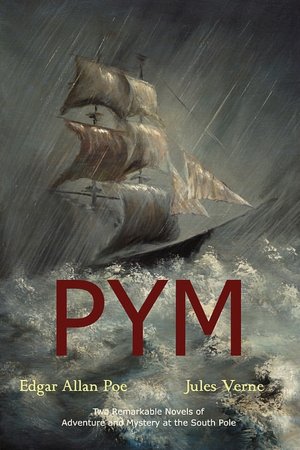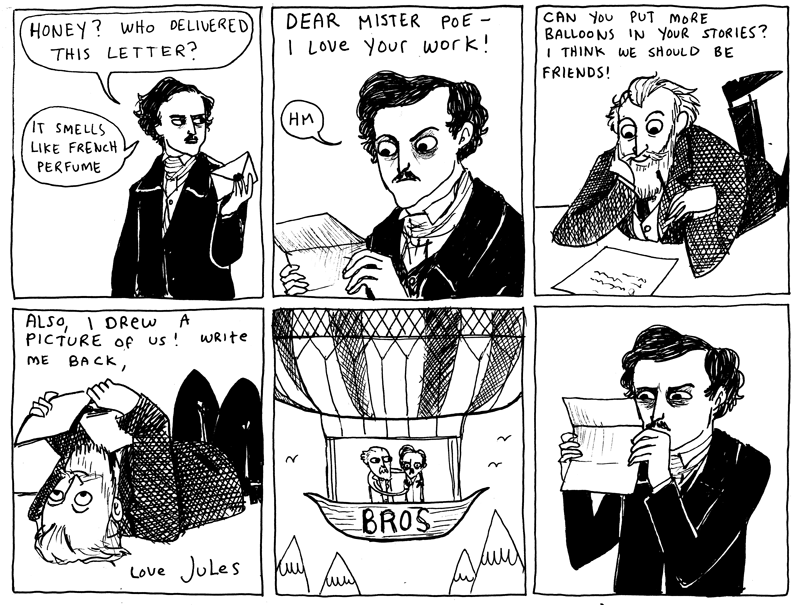
In 1983, the term Cyberpunk was born, with a story by the same name by author Bruce Bethke in Amazing Stories #94. The term is defined as a "[S]ubgenre of science fiction that focuses on the effects on society and individuals of advanced computer technology, artificial intelligence and bionic implants in an increasingly global culture, especially as seen in the struggles of streetwise, disaffected characters. (Prucher, Jeff, Brave New Words: The Oxford Dictionary of Science Fiction, 30). The word itself comes from the meshing of 'cyber' and 'punk', which to me has always seemed as an electronics rebellion. Certainly, the subgenre is one that presents drastically different stories and meanings than what had traditionally been science fiction, and in a way, the style represents a degree of cutting edge thinking that really belongs to the first on the scene, with the truly unique and original thoughts that go against the grain. I think of cyberpunk as the books that are out looking for a fight, ready to cut those unprepared with what they have to say.
My main issue here is two-fold. The first is that with that in mind, it's hard to apply that sort of label to any sort of science fiction after the term is pushing 30 years old, much as it's hard to take someone seriously who's been involved in the punk scene for a comparable amount of time, with several records under their belt to a major record label. The surprise and edge vanishes after a while, and in a way, the 'Cyberpunk' term has become a label that's synonymous with electronics and dystopia. At the same time, the suffix '-Punk' seems to be added onto any number of themes and styles of science fiction literature. Steampunk is a ready example, both visually with film, photography and costuming, but also with such books as Cherie Priest's Boneshaker, where there is a blend of dystopic and steam-powered technology. The problem that I see is that the idea behind 'punk'-style music, video, literature is that it's something that ultimately rebells against a label, and in science fiction's field of vision, -punk is the marketing term to rally behind in creating a subgenre, undermining or missing what the word in the meantime really means.
The term itself came at a time of globalization and a rise of technology around the world, and has since become a label for any number of stories that correspond to a use of technology, with dystopic and near-future themes. Promoted by Gardiner Dozois, the term has largely been used to describe books by William Gibson, Philip K. Dick, Bruce Sterling, Neil Stephenson, and many more. Neuromancer really cut in close at a time before the Internet and home computing, creating a vision of the future that was wholly unique, interesting and edgy. In a large way, the term really did apply to a lot of these earlier books. (This is not to say that modern books in the 'cyberpunk' genre are bad - far from it. This isn't a specific criticism at the books within, just at the association and labeling that they're saddled with). Like observing a quantum event, you change the picture simply by looking at it, and in effect, calling something 'punk' undermines the meaning of the term, and ultimately, does the books labeled as such a big of a disservice. In this day and age with computers and virtual worlds becoming the norm, computers and electronics aren't necessarily that edgy, and any book written in the genre will most likely be compared to Neuromancer in some way or form.

At the same time, I've long been irritated by the Steampunk genre as a concept. According to Brave New Words, the term was coined just four years later by K.W. Jeter in a letter, noting that he believed that stories set in the Victorian era will become the next big thing, and suggested the term Steampunk, most likely in relation to the same edgy connotations that '-punk' gave the word 'cyber'. Once again, the idea of the word 'punk' being used as a label, especially a label right out of the gate, goes against all of the rebellion and fire that the term really should hold for that which it describes. Steampunk is a subgenre that is really beginning to grow a bit more, but doesn't feel new or edgy as far as its content goes: much of what you can see in the stories has long roots in the genre: the stories of Jules Verne and H.G. Wells, for example, could easily fall well within the common definitions of Steampunk, and they did it when the concepts were really new and punkish in their own right. (Wells, especially, went across the grain in his literature and his personal life). Thus, a lot of this current steampunk fad is a retread over old ground, with stories that tell drastically different things this time around. Cherie Prist's latest book, for example, isn't so much about technology as it is about character inter-relations in a steampunk-styled environment, one that I'd really label as alternate history over Steampunk. The same goes for recent books by K.J Parker with Devices and Desires, Christopher Priest's The Prestige and Ekaterina Sedia's The Alchemy of Stone. I've long believed that the term science fiction, fantasy and speculative fiction in general really transcends the content and goes far more towards the themes, plotline and characters of each work.
Still, there seems to be a tendency for new genres to be bestowed with the '-punk' suffix to differentiate various groups of works by content and theme to perfectly define its own little sub-genre and capture a specific audience. In a large way, it's a good move on the parts of publishing marketing departments to better make their books sell: define an audience, and target them. In some cases, it's warranted. The stories of Paolo Bacigalupi, for example, such as The Windup Girl, The People of Sand and Slag and The Calorie Man, all exist within stories that are defined by their environmentalism-styled stories, ones that have a clear and defining message within a near future, influenced by current events. I've seen others, and called them myself, bio-punk, because in a way, they are some of the more raw, unique and though-provoking stories that I've yet seen. I'm sure that there are other stories, (including the upcoming story at Lightspeed Magazine called Amyrillis, by Carrie Vaughn), that looks at the environmental future and the speculative elements of the next several decades, at the same level of intensity as the early Cyberpunk stories. At other points, I've seen a tendency to apply the label to other things that really don't warrant it, and I can't help but wonder if '-punk' has just become synonymous with 'subgenre' or 'cool'. With the rise of steampunk and cyberpunk, what's to say that there won't be a major movement like 'biopunk', but alongside such things as woodpunk, ironpunk and stonepunk, each with their own style of stories, each more ridiculous than the last? In this possible future, Homer's Iliad, Odyssey and the entirety of the Greek myths will be re-categorized as 'Bronzepunk', and the Apollo-era of space stories will be titled 'Vacuumpunk' (which will most likely be re-titled for ironic effect, vacuum pump fiction).
The main question behind all this is that if the term '-punk' becomes an expected title for any style of sub genre, does it really convey the same meaning as it did in those early days, when? I think that it doesn't, because the idea behind the term is that the fiction is unexpected and raw, and placing the label on it becomes an effective, safe bandage that soothes what shouldn't be. The fiction isn't at fault, it's the hype behind it. Ultimately, speculative fiction as a whole is done a disservice by the constant subgenres, which separates out everything into miniscule categories that are ultimately meaningless, governed and sold based upon their superficial elements, but not the central themes that ultimately make a story worth reading. Punking a genre seems to be the epitome of posing, especially if the term is simply applied to a brand of stories for the simple purpose of finding a market for them.
 My latest column for Kirkus Reviews is now online! In it, I talk about Jules Verne and his fantastic novel From the Earth to the Moon. I recently talked about Jules Verne in his influences that stemmed from Edgar Allan Poe, and I was particularly eager to return to Verne as a major influence in the genre.
My latest column for Kirkus Reviews is now online! In it, I talk about Jules Verne and his fantastic novel From the Earth to the Moon. I recently talked about Jules Verne in his influences that stemmed from Edgar Allan Poe, and I was particularly eager to return to Verne as a major influence in the genre.
 My latest column for Kirkus reviews has just been posted! While doing some reading on Edgar Allan Poe, I came across an interesting point: Poe only wrote a single novel, The Narrative of Arthur Gordon Pym of Nantucket, which was later picked up upon by legendary science fiction author, Jules Verne in An Antarctic Mystery. In a large way, it was one of the first works of fan fiction!
My latest column for Kirkus reviews has just been posted! While doing some reading on Edgar Allan Poe, I came across an interesting point: Poe only wrote a single novel, The Narrative of Arthur Gordon Pym of Nantucket, which was later picked up upon by legendary science fiction author, Jules Verne in An Antarctic Mystery. In a large way, it was one of the first works of fan fiction! 

